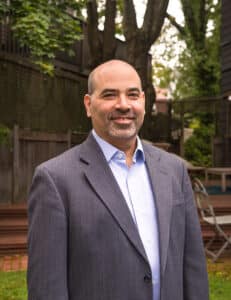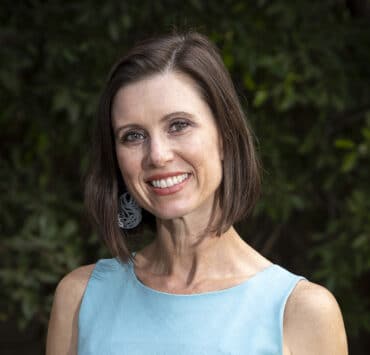|
Getting your Trinity Audio player ready...
|
David Kuznick was working in artificial intelligence (AI) before it was cool—long before most even knew what it was. And about two decades after that career began in 1988, he made a major career change: earning a law degree.
Today, he is senior legal counsel of intellectual property litigation at Dell Technologies, largely involved in defending Dell in patent matters. It may seem like a logical area of law to pursue for this former software engineer, but patent law was not his first choice of practice. “I was interested in criminal defense law,” he says, denying that his interest in jurisprudence was about achieving a salary hike.

Nonetheless, given his background, he was offered a summer law firm clerkship after his second year of law school, one that had him concentrating on IP. After being offered a permanent position, he discussed the offer with one of his criminal law professors who was well aware of what Kuznick thought he wanted to do. That professor strongly encouraged him to follow the IP opportunity. He did, he ended up liking it, and now a dozen years later, he’s defending the work of technologists who are versions of his former self.
It’s work with a lot riding on it. Patents are the lifeblood of not just the tech sector, but the economy overall, providing the protections needed to develop and monetize such things as renewable energy, advanced manufacturing, computers, storage, digital security, and related products. Dell currently holds more than twenty thousand patents, adding thousands more each year.
While Kuznick thrives in this role, the transition into the legal field presented a few challenges.
First there was law school in his forties. He didn’t work while studying, but dove into a full-time program. Was it a culture shift, if not altogether hard at that age? “It was an interesting time,” he remembers. “I had already had a full career of experiences, so that means I knew how to handle myself professionally. In the first IP firm where I worked, I liked being surrounded by other technical people. Also, a lot of them had a dry, sarcastic sense of humor. Which I like.”
“I already had a full career of experiences, so that means I knew how to handle myself professionally.”
David Kuznick
He also found himself at an entry level in law, but it didn’t seem to bother him. “I’m humble enough for that,” Kuznick jokingly quips. Which isn’t hard to imagine, given his curiosity and penchant for learning, which was key for his advancement in the job.
Patent-related law isn’t for everyone. But it is possible to become a patent agent without going to law school if the individual has a hard science bachelor’s degree, and also in some cases, computer science. They can take the Patent Bar Exam, which is the same exam taken by patent attorneys. Kuznick encourages people who might be able to follow that track to give it consideration before law school. Both can prepare, file, and execute applications for patents. Patent attorneys like Kuznick have a broader range of responsibilities and are able to participate in the full spectrum of litigation—sometimes with the technical expertise of a patent agent who might be better versed in the specific science or technology involved.
As Kuznick digs into any particular case it’s a big advantage to have some familiarity with the technology. “I don’t have to start from scratch,” he says.
“I find in business there are people with whom I share interests and I enjoy conversations with them.”
David Kuznick
His other advice for aspiring attorneys is make, keep, and nurture academic and professional contacts. This matters in large companies such as Dell, which has more than one hundred thousand employees. For Kuznick, who claims to be an introvert, this took intentional effort. But he says he’s good at staying in touch with people. “I find in business there are people with whom I share interests and I enjoy conversations with them,” he says.
Dell has a standing policy of encouraging its employees to participate in community work. But Kuznick’s pro bono endeavors are far removed from the day-to-day work of intellectual property. Instead, he applies his courtroom and writing experience to, among other things, helping immigrants obtain permanent residence in the US. One of his proudest achievements is getting green cards for two young people. “They were escaping abuse in their home countries,” he notes.
And while the AI that Kuznick helped pioneer in the 1980s is now a part of everyday life, it’s interesting to think about how recent immigrants to the US will use AI applications in this century. At the core of it are patents, and patent attorneys, that incentivize businesses to be innovative.
Editor’s Note: Any opinions expressed are those of Modern Counsel or David Kuznick, not Dell Technologies.
“David manages complex litigation smoothly, bridging the gap between his business and outside counsel. His communication and strategic thinking are critical to the successful resolution of his cases, and he is an invaluable team member.”
–Brian Rosenthal, Partner

